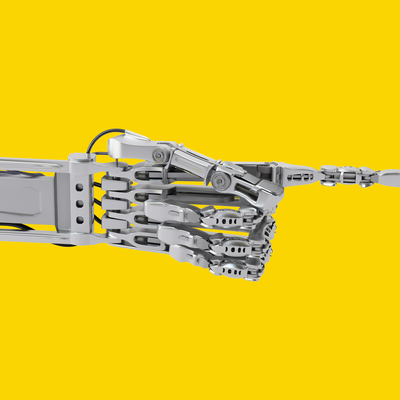
Often, the algorithm is wrong.
The algorithm thinks that I want to listen to the Hamilton soundtrack. The algorithm thinks that I want to see every movie Katherine Heigl ever made. The algorithm thinks that I want to read the wedding announcements of strangers and the columns of Thomas Friedman. The algorithm thinks that I want to laugh at the illegible jokes of friends of friends, or seethe along with their outrage. The algorithm thinks that I should be buying gladiator sandals and rose-quartz tchotchkes. It believes me to be a deep aficionado of tattoos, of strange babies, of ceramics. The algorithm wants me to date 33-year-old lawyers who went to Penn. It wants me to reconnect with Ashley and Katie and Emily and Mike. It wants me to toss off an expertly contoured cheekbone. It wants me to care a great deal more about domesticated animals than I currently do.
This isn’t me … right? I don’t want any of these things … do I? The unsettling thing is that the algorithm knows me, has studied me clinically. At my cheapest and at my most desiring, my most grasping, my most idealistic. The algorithm knows where I live. It knows the embarrassing secrets: that I don’t actually hate the music of Taylor Swift as much as I say I do; that I am fascinated by and intimidated by the streetwear moment; that I have watched When Harry Met Sally more times than I will admit here in public — but the algorithm can’t be fibbed to. The algorithm is my mother and my undermining friend and my id and my boss and my guide and my enemy who read my diary. The algorithm looks me in the eyes and sees what makes me me, the deep weirdnesses in my soul and my clicks, my lingering late-night scrolls, and the searches too urgent for a private tab. It does all that, and then it dismisses me as just another chick in her 30s: “Check out this ikat tile, you’ll love it.”
Algorithm shame: an emotion that has become as impossible to escape as the internet itself. It is the feeling of being pigeonholed, of being only partially but inescapably recognized, but — and here’s where the shame comes in — with almost no one to blame but yourself. The algorithm is simply following your lead. The algorithm flattens quality, confusing categorical equivalence for similar merit; it can’t tell the difference between When Harry Met Sally and The Ugly Truth. (In the algorithm’s defense, neither can studio executives, apparently — although maybe they’re largely human manifestations of the Algorithm.) Every day, with every unappealing list of supposed comedies starring a supposed strong female lead, you are hoisted by your own petard. The algorithm knows I had to Google that idiom before I used it; how will it shame me for that later?
“The” algorithm? an engineer might be thinking. In practice, yes, there is only one algorithm, the algorithm, which is, as I think of it, a hydra-headed beast that stalks you all the way across the internet, no matter how many precious Silicon Valley valuations have been created by the specialness of a particular algorithm’s distinction from its competitors. (Besides, given how much of our data is shared across social networks and browser history, I’m not so sure my streamlining of it all into one algorithm is all that wrong, anyway.)
I am not the only one unsettled by algorithm shame. “TFW the algorithm has given up on you,” tweeted Taffy Brodesser-Akner, alongside a photo of a garish floral caftan that had been advertised to her. “It’s like the algorithm has no idea what the narcissism of small differences means,” wrote Emily Gould in reply to a tweet about how the Who to Follow queue is a parade of people you don’t want to follow. “Holy shit when did I become a sixty year old banker from Darien,” tweeted a journalist who will remain unnamed — because he has since apparently become so ashamed of the screengrab of the old-white-guy classic rock that his streaming service was suggesting that he deleted the tweet. I saw these tweets because the algorithm served them to me; the algorithm knows that I am far too interested in the hermetic universe of other magazine journalists’ stray personal thoughts.
When I asked friends whether they’d ever felt algorithm shame, they knew what I meant at once. There were tales of diaper ads served to single 32-year-olds; kids’ stuff shoved mercilessly at parents (“Boys’ underwear is always coming at me, which makes me feel like a perv”). One friend described an early and alarming version of algorithm shame, in which — like a certain number of people who perhaps shared a taste for historical documentaries — her Tivo seemed to conclude that she was a neo-Nazi. Now, in a strange reversal, her Netflix believes her to be, or be in charge of, a child who is very interested in horses. “Sure, I like Degrassi, and I did watch a few episodes of Steven Universe purely for research purposes, but I have never been a horsey girl,” she says. “Maybe Netflix knows the real me?”
Instagram is particularly a place for reflecting feminine desires and insecurities back at the user in what can feel like an anxiety-producing way — there are endless inescapable manicure and wedding and body-positivity accounts and engagement-ring photographs on Instagram Discover. Or as one friend wrote to me angrily, “HAVE SEEN KYLIE’S BUTTOCKS NOW 586 WAYS, BUT I FOLLOW NO KARDASHIANS.” (She does, she admits, follow some Kardashian adjacents and Gwyneth Paltrow, which may explain it.) The algorithm also declines to cut anyone slack for a little harmless stalking: One friend told me that she had deeply investigated a woman who’d recently started following her ex, only to realize that it was a porn bot. Her feed now seems to think she’s a horny 13-year-old. Another was mortified to realize that her current boyfriend’s ex was the star of her Instagram Discover. Was this from her own research, or worse, from his tab-keeping while using her phone or computer? Neither option was what she wanted for her relationship. This sort of thing is what makes algorithm shame such an unsteadying, hard-to-ignore emotion. Because, for every incorrect and shallow assessment of your tastes, there is one searing, unsparing glimpse into the depths of your most secret fears and hopes.
I have one friend who recently, and at a relatively advanced age, realized he was interested in men. The algorithms understood this almost before he did. Before he had come out, when it was still something deeply private, his Instagram Discover page began, slowly, to be overtaken by things like beefcake photos of men, and enviable Fire Island retreats. Was it the way he lingered unconsciously over certain things in his feed? Telltale cookies from furtive late-night searches? Algorithm shame, for him, had a far more complicated valence. But now, some months and a coming-out later, he’s back to a more quotidian version of the emotion, and complained to me that the algorithm had begun serving him ads for something called Misterb&b — a cheesy gay men’s vacation rental service. He might be gay, but he’s not THAT kind of gay.
But the algorithm itself can’t feel shame at how wrong it got my friend, and that’s both its advantage and disadvantage. It is an insistent and tone-deaf sales clerk, one who might just hit on something that’s correct every once in a while, but more often just makes the customer want to hide out in the dressing room. It mistakes curiosity for approval, conflates the personal with the generic. But the truth is that we only notice it when it becomes clumsy and picks something wrong. Just as much as we shape it, it shapes us, an endless feedback loop of scrolling and clicking until we can’t remember if we’re embarrassed or if this, after all, is exactly what we wanted to see.





























